Featured guests
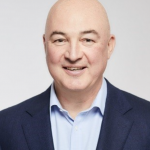
Alan Jope is the Chief Executive Officer of Unilever since January 2019. He is responsible for the world’s largest consumer goods business, with presence in 190 countries. Mr. Jope is also the Vice Chair of the World Business Council for Sustainable Development Executive Committee, a member of the World Economic Forum’s International Business Council and on the Board of Directors of the Consumer Goods Forum. He is also Vice Chair of the Unstereotype Alliance and a private sector Steering Committee member of the UN’s Generation Equality Campaign.
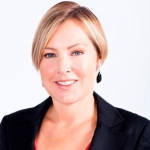
Gillian Tett is chair of the editorial board of the Financial Times. She writes weekly articles, covering economic, financial, political and social issues. In 2014, Ms. Tett was names Columnist of the Year in the British Press Awards and was the first recipient of the Royal Anthropological Institute Marsh Award. She has even published a book, in 2009, which won the Financial Book of the Year at the inaugural Spear’s Book Awards.

Annemarie Hou is the Acting Executive Director of the United Nations Office for Partnerships and the Senior Communications Adviser in the Executive Office of the Secretary-General at United Nations. Ms. Hou’s main focus is on advocacy and strategic communications for sustainable development. Most recently she served as Chief of Staff and Director of Executive Office for the Joint United Nations Programme on HIV/AIDS. Prior to this, she worked in the philanthropic field with a focus on health and children’s issues.
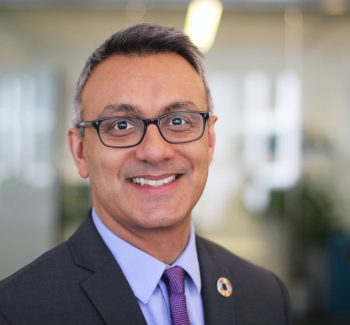
Rajesh Mirchandani is the Chief Communications Officer at the UN Foundation, where he works to advance progress on important global issues. Mr. Mirchandani has over 20 years of global journalism experience with the BBC. Over the years, he has been a frequent collaborator of the UN as a moderator and commentator.
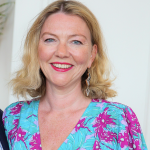
Kate Garvey is a public relations executive and former aide to British prime minister Tony Blair. Ms. Garvey is the co-founder of Project Everyone, a communications and campaigning agency promoting the UN Sustainable Development Goals.
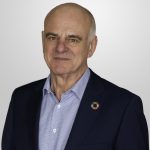
David Nabarro is the Co-Director of the Imperial College Institute of Global Health Innovation at the Imperial College London and supports systems leadership for sustainable development through his Switzerland based social enterprise 4SD. From March 2020, Mr. Nabarro is appointed Special Envoy of WHO Director General on COVID-19.
In October 2018, he received the World Food Prize together with Lawrence Haddad for their leadership in raising the profile and building coalitions for action for better nutrition across the Sustainable Development Goals.

Rose Beaumont is senior vice president, Business Enablement and Communications for Mastercard.
In this role, Ms. Beaumont leads all internal and external communications, business experience, interaction and amplification for Mastercard throughout Europe and internationally.
Focused on delivering integrated solutions and experiences that drive business performance, enhance reputation and brand and drive engagement and understanding across all audiences, Ms Beaumont combines excellence in thought leadership and strategic vision with creative execution and story-making.
Prior to joining Mastercard, Ms. Beaumont was with The Walt Disney Company, where she was most recently executive director of brand and franchise for Europe, Middle East and Africa. Prior to that, she was director of communications for Yahoo! Europe. Ms. Beaumont also brings a wealth of experience from her previous roles leading diverse, global teams and driving creativity and strategic thinking.
A passionate believer in the power of communications, her expertise lies in helping a brand connect with its many audiences in creative and innovative ways.
To learn more about the 2020 Mastercard Index of Women Entrepreneurs, click here.
Transcript
Kate Garvey (00:03): I think the individual stories of these people are what is going to inspire more change.
David Nabarro (00:08): COVID needs, collective leadership, like we’ve never had before, and yet we’re missing it. This virus is challenging humanity really massively, and we’re failing to deal with this.
Alan Jope (00:21): What we do in the next 10 years will shape our world for the next 200 years.
Gillian Tett (00:26): But what is happening inside company boards and investment committees and in accountants and this new breed of what I call these activist accountants or warrior accountants is potentially encouraging.
Rajesh Mirchandavi (00:38): Now all of us listening to the podcast, we have a responsibility. We have an opportunity as well to help bring all these disparate diverse voices together because together they are an unstoppable potent force that governments must pay attention to.
Claudia Romo Edelman (01:05): This is the Global Goalscast.
Edie Lush (01:07): The podcast that shows how we can change the world. This episode is part two of our look at the crisis in the SDGs.
Claudia Romo Edelman (01:15): We are in search of the key actions that will help us put the global goals back on track.
Edie Lush (01:20): So we want to share with you the zoom town hall that Claudia and I hosted with top corporate NGO and UN officials. But first this,
Michelle (01:31): This episode of global goals cast is brought to you by MasterCard. MasterCard is dedicated to building an inclusive world in which the digital economy works for everyone everywhere. Thanks also to CBS News Digital.
Claudia Romo Edelman (01:52): This is a special edition to discuss the future of the global goals. We recorded this live on the final day of the global goals week, which is part of the United Nations General Assembly. This year was so bizarre. I missed everyone in New York and the traffic and seeing the champions, making a difference and making those connections and feeling the vibrancy of people that want to change the world. But now it was an E – UNGA, totally virtual and I had to wear my SDG t-shirt at home.
Edie Lush (02:25):
I know, and I had to wear my SDG pin at home. We are living in a virtual world. This is the UN 75th anniversary, and it was always meant to be historic.
Claudia Romo Edelman (02:36): But this was historic in ways no one intended – in the middle of the worst global pandemic in 100 years, and the worst global economic collapse since 1870. In crisis, sustainability always falls through the cracks. COVID came and hit hard – everyone from companies, countries, and individuals. We are one-third of the way through the global goals timeline of 2015 to 2030, but we have slipped backwards this year by decades. The entire UNGA -slang for the UN General Assembly – we heard powerful ideas on how to move forward. We are realistic, but we are optimistic and therefore we’re ‘possible-istic’ because we know it’s possible. And we have super smart guests to help on that conversation.
Edie Lush (03:27): That’s right. Let’s get them in right now. It’s a good point to mention, by the way that the audio is not up to our extremely high standards that our producer, Simon James puts on us, but the content is so important that we thought it was worth sharing. So I began by asking the co-founder of Project Everyone, Kate Garvey, what really struck her.
Kate Garvey (03:52): I’m going to take the optimistic side of things. And I think that the Sustainable Development Goals got renamed earlier on this week by my co-founders as the Sustainable Development Solutions. Actually we do know what we need to do and had we done it before, we’d be better prepared, but now is the time. There has never been a better time and more obvious time that we know what to do. And now we’ve got to get on and do it.
Edie Lush (04:16): Thank you, Kate. So a regular now at Global Goalscast our good friend, creator of Moral Money, Editor at large US Financial Times, Gillian Tett what struck you.
Gillian Tett (04:27): Okay. Well, the top line story that dominated the news was things like the spat with green President G and Donald Trump about who’s more to blame for global emissions, but to my mind, picking up on Kate’s point, one of the most interesting developments was something that got almost no attention, which was the big four accounting firms came together and agreed to create a sort of a unified framework, for ESG reporting, SDG reporting. They took the alphabet soup or they’re hoping to take the alphabet soup of accounting standards and make it a bit more tasty. And that sounds really geeky and boring and dull, but believe me, the way people measure the world and their actions in it, if you’re a company or a financier, is critical because that drives behaviour. And so oddly enough, this geeky accounting step forward, if you’re looking for solutions, may end up being a lot more important than actually what was on the front pages of most of the media
Claudia Romo Edelman (05:31): Partnerships, Goal 17, was a big topic yesterday at the Leaders on Purpose summit. We can’t get there alone, which is why we’re so glad to have Ann-Marie Hou with us. Ann-Marie –
Ann-Marie Hou (05:43): I agree, solutions was really a big theme of UNGA this year. And not just solutions, but the idea that urgency that goes beyond the solutions. I think people are starting to recognize that all of these preexisting inequalities – COVID has just brought them to bare. And really this is our opportunity right now to focus in on who is being left behind, who is not getting the access, and be able to find those supercharged solutions. I would say also that as virtual has become our new reality, it really is a challenge for us to be better communicators about the Global Goals and how people can get involved.
Edie Lush (06:24): So now another dear friend of Global Goalscast, and a recovering journalist himself, Rajesh Mirchandani, chief communications officer UN Foundation. What struck you?
Rajesh Mirchandavi (06:35): Conversations I’ve heard this week confirm one thing – that COVID-19 has impacted everyone in every aspect of our lives. It’s shown us we’re only as strong as our weakest, and our global community depends on each other like never before. You know, it’s making inequality worse, it’s reversing progress that we’ve already made. And it’s showing us that our health systems were both under-prepared and unequal. That’s one of the reasons really why we launched a campaign called Unite for Health, because it’s only when we stand strong and united across countries, across communities, across sectors that we can defeat new challenges. We can protect progress, we can strengthen those systems. So they reach everyone everywhere, fairly. And you know what COVID-19 has also underlined, something that we already knew, that the issues we face are interconnected -health, equality, climate, everything, at the most fundamental level. That understanding lies at the heart of the SDGs. And it reminds us that the SDGs are our way out of this, if we work together.
Claudia Romo Edelman (07:37): Thank you so much, Ann-Marie, Rajesh and Kate, pretty much I want to call you out because you pretty much cooked the entire Global Goals week. And I missed being part of that kitchen guys, but it’s so great to have you now. As I said, we aim to be a voice of optimism for the Global Goals, but also shine a light on where things need to be called out or where extra attention should be shown. So where are we currently in terms of achieving the 2030 agenda? Let’s start with you Gililan.
Gillian Tett (08:07): In terms of hitting the 2030 agenda, sadly, because of COVID many of the health and poverty and FEMA inclusion goals, as you’ve just heard, have been badly undermined. That just is a reality, that COVID has set a lot of progress back. The one bit of good news is that the sheer shock of the event has galvanized many companies and financial groups. And it’s really shown three things. One is that science matters. You can’t ignore science. Secondly, we do live in an interconnected world where the weakest link matters too, because if the weakest link breaks, we all suffer. And thirdly, its shown that behavior can change. And you’re seeing rising pressure and the aftermath of Covid from consumers and ordinary citizens and employees on their company leadership saying what’s going to happen. So even though you’ve had a lot of company leaders and financial leaders badly distracted, many of them continue to get engaged with the Sustainable Development Goals and to keep pushing that forward. So that’s a bit of encouragement, if you like. But the macro picture is not encouraging sadly.
Edie Lush (09:22): And Kate, at Global Goalscast, we like to say, we like to spread facts, not the virus, and you’ve designated today the Day of ‘Factivism.’ So tell us more about that.
Kate Garvey (09:32): Yeah, well, it is the fifth anniversary of the Global Goals today. So happy Global Goals Day, everyone. We – who remembers where we were five years ago, very tired, I think. And we were trying to reach everyone with the goals. Well, I think what we’ve dis- worked out is, yes, people need to know about the goals, yes it’s great that we’re wearing our badges and people understand and are starting to recognize the brand behind it. But It is about the facts behind the goals and what people can do about it. That’s what we hear people say, what can I actually do? So the Day of Factivism is partly sharing real time data that our friends at GPSDD and Sustainable Development Solutions Network have created – sharing those real-time data behind the goals, but then absolutely being clear about what people can do about it. Whether it’s being part of a campaign or a movement, whether it’s taking individual action, whether it’s being part of speaking to businesses about what more they can do, and obviously politicians, too. Holding everyone accountable to that, but finding ways to communicate better what these real facts are. I just jumped off a call – I’m sorry, I’m losing my voice – about Wiki loves SDGs. So bringing two of my worlds together. It was fantastic. There were hundreds of volunteers who have increased thousands of articles on the goals that were really quite badly represented, young people from around the world, global North global South coming together to write more about what’s behind the goals in an excellent online encyclopedia.
Claudia Romo Edelman (11:07): And I love actually that you’re able to bring the two worlds together, and that you’re not losing your voice because you are shouting too strongly, the facts and the figures that people should hear, like get it now. And now Rajesh, have we lost momentum on climate action?
Rajesh Mirchandavi (11:23): You know, Claudia, that is the big question. The climate crisis has not gone away. I think we all know that. Despite the global economic slowdown and the lockdown reducing economic activity, greenhouse gas emissions are at their highest concentration ever the world just experienced its warmest, highest temperatures. Look at the news. I mean, if it’s not COVID it’s wildfires or it’s floods or it’s droughts around the world. That is the problem. And when we see that some world leaders are not following the science and are not stepping up like they should. But in the absence of that international level leadership, there are so much leadership being shown at so many different levels. And this is something that, again, I’ve really noticed in the events that I’ve been dialing into this week. You know, we’re seeing companies signing up to be net zero, setting science-based targets. We’re seeing regional leaders taking the lead too, there’s an organization that’s hosted the UN Foundation called the US Climate Alliance, which is a group of bipartisan state governors in the US covering more than 60% of the US population and GDP committed to the goals of the Paris Agreement. It’s under the auspices of that organization, that Governor Newsom of California this week announced moves to make all new cars sold in California electric by 2030. That is a good thing. We’ve seen new leaders coming together at local levels as well. The secretary general has this year inaugurated the youth advisory group on climate change of young people supported by a wider group of young climate activists that we’re regularly in touch with that number in the thousands. They’re all doing work in their own communities and on the ground together because they get it, they follow the science, they follow the data. You know, they are ‘factivists’ already and they’re already leading and pushing. And I think together all of us here on this call, now all of us listening to the podcast, we have a responsibility. We have an opportunity as well to help bring all these disparate diverse voices together because together they are an unstoppable potent force that governments must pay attention to.
Edie Lush (13:42): Let’s stick with this point about climate change. Uh, there was an article I read this week was by Huw van Steenis, another friend of the podcast. He was arguing that corporations and markets are adapting faster than governments to climate change. So Ann Marie, I wonder those governments are all members of the UN. So what can the UN do to help move governments?
Ann-Marie Hou (14:06): I think momentum hasn’t slowed down as much as we may think with COVID. Last year you’ll remember it was Greta coming into the harbor, met by all of these SDG sail boats. And there was a lot of excitement around that. But I think that excitement has carried through by that intergenerational leadership that Rajesh was talking about. Yesterday the Secretary General held his climate round table and one leader after another -decarbonization was definitely the biggest theme in that round table and bringing together all of these leaders from both governments, as well as private sector, you can see that there are coalitions and actions being taken and commitments being made with follow-up. And the UK prime minister said, you know, COVID caught us off guard, but things like climate change, we can’t say that they have caught us off guard. If anything, we know exactly what needs to be done and we need now the political will to do it. And so I was really excited to see from industries, such as the cement industry, to Brad Smith, the president of Microsoft, coming together, again around that net zero, making those commitments and bringing the coalition so that we can actually get to scale on some of these really incredible solutions.
Claudia Romo Edelman (15:21): Gillian, does that ring true to you? That markets and corporations are moving faster on climate?
Gillian Tett (15:26): Absolutely. Not in all sectors, but it really is a case of rising investor pressure. It was very interesting because I took part last week in an event to celebrate the 50th anniversary of Milton Friedman’s landmark essay. He was the economist, the American economist who said that as far as companies are concerned, the only duty of company leaders and financiers is to care about shareholders and maximising shareholder returns. So we started off the conversation with a big split between people who were talking about SDGs and ESG, and the people who only care about maximising returns. But, by the end of the discussion, we suddenly had a rare moment of harmony. Because the level of transparency that’s emerging around company accounts and financial activity and the degree of consumer and employee pressure combined means that if you’re running a company or a financial group today, you cannot afford to alienate large numbers of your consumers and employees who have access to that data over things like your carbon footprint. So suddenly even Milton Friedman, if he was alive today, would probably say, actually it makes sense for a CEO to care about this, because actually it’s going to affect the business or the financial group. And I think that is so important. It’s not well understood because with many of the people who’ve been doing this incredible work on global poverty and climate change come from a science background, or an activism background, or a nonprofit background. But what is happening inside company boards and investment committees, and in accountants and this new breed of what I call these ‘activist accountants’ or ‘warrior accountants,’ is potentially encouraging in an otherwise quite depressing landscape.
Claudia Romo Edelman (17:43): Thank you. Rajesh?
Rajesh Mirchandavi (17:24): I’m just laughing at the idea of warrior accountants. It’s a fabulous image. As someone who gave up accountancy during my economics degree, because my T tables wouldn’t balance I could have done with a warrior accountant, I tell you. I just wanted to just build on some of the points that the others have made. You know, I was at a – ‘at’ – I dialed into a virtual dinner last night with a group of international CEOs, a really high-powered group. And we were talking about the need for greater global cooperation and the need for greater collective action. And they all mentioned how they had seen the speed with which different sectors came together over COVID or are coming together over COVID as something that they’d never seen before this ability and willingness to form partnerships that have never existed before to make something that’s greater than the sum of its parts was really inspiring to people. And they felt that that could translate to other issues as well. So for example, on climate change, you know, there is a willingness to build coalitions across communities and sectors now, like I’ve never seen it before. And to the point about our markets and businesses moving faster. Yeah, of course, because that’s what they’re good at. I mean, they have the innovativeness, they have the agility that is often not quite as honed, shall we say, in the public sector or the social sector. And that’s what they’re really good at. And that’s why there’s such a powerful force, not only to be at the table, but to be driving the conversation as well.
Edie Lush (18:53): So, Kate, I want you to tell us about some of the positive developments. I loved reading the Goalkeepers Report, reading about the decision that Ethiopia made to continue its vaccination program. You pointed out India and digital payments, increasing money going to women. What are you most excited about in terms of the positive things we’ve seen?
Kate Garvey (19:17): A lot of the young people that have come through the Goalkeeper community and campaign are the people that have inspired us. So this year we gave Global Goals Awards to three outstanding Changemakers from India, Nepal, and Nigeria. And so they are setting the way – they have pivoted what they’re doing, they have changed to adapt and they are not stopping. And I think that’s amazing then there’s the more senior Global Goalkeeper, Dr. John Nkengasong from the CDC in Africa, who, who was ordered too. I mean, he really is at the top of his game, and yet his humility about sharing his award with the people that he works with across the continent of Africa has been extraordinary. So I think the individual stories of these people are what is going to inspire more change. And I think through Goalkeepers and a lot of the work that we do with the UN bringing out these stories is what’s going to keep the momentum going.
Claudia Romo Edelman (20:21): Yeah, and keep the momentum going is what you guys are doing at Project Everyone. I really admire the, the drive. And you know, like, this is not a sprint, it’s a marathon. So you have to have all these creative ideas on how to engage people and how to keep on winning the hearts and the minds and everything we’re doing. And to making UNGA, even a hot potato and a hot ticket, like a sexy thing. That’s amazing. So before we open it up for everyone, just for everyone in the panel, leaving the UNGA or the Global Goals Week, what are you most worried about.
Rajesh Mirchandavi (20:54): That we’ll have to do virtually again next year.
Claudia Romo Edelman (20:58): That would suck, totally.
Rajesh Mirchandavi (21:02): I’m inspired every day by the forcefulness and the vigor and the determination of young people around the world. They’re doing this stuff, regardless of anybody they’re not waiting to be told or asked. It’s our job to kind of get out of the way and connect them. So I’m inspired by that, but I’m, I’m, I’m really worried about actual, you know, health progress on tackling the pandemic. That’s the thing that keeps us all up at night, I think. And that’s why it’s great to see that major governments have announced commitments to equitable development and delivery of vaccines when the vaccines are actually available. Because if, you know – none of us are safe until all of us are safe. And so it’s that very real question mark that hangs over what will our world look like in 12 months from now that really does worry me. But our faith in the SDGs has only been – my faith in the SDGs has only been underlined by what’s happening around the world now.
Kate Garvey (21:59): What I’m worried about is an accident that causes part of the fiber connection that we’ve come to rely on in the current COVID crisis to break down. I think that would be a very debilitating blow. I’m worried about a deep economic recession that goes on and on. I think that we haven’t really seen the cost of what’s happened yet because so much government money has been thrown at it, propping up. And if either of those two happen, I would then be very worried about yet more distraction away from the Global Goals, unfortunately. I know that will happen, that’s my concern. And then of course, living in America is not easy to ignore the potential for political upheaval, too.
Claudia Romo Edelman (22:49): So I’m going to open it up now for our incredible group in the audience. So let’s start actually with Alan Jope. I would love to hear from the CEO of Unilever. What is your perspective? How do you see it happening in your company, Alan?
Alan Jope (23:04): Well, look, first of all, I did put in the chat that I’m worried about the mismatch, where our carbon emissions just keep going up and up and up. And, uh, somewhere in some panel or other, someone said, what we do in the next 10 years will shape our world for the next 200 years. And it’s a sobering thought that we are really at such a tipping point. And you know, I’ve always said for the last few years that I think climate change and inequality are the two super ordinate problems. And I’m starting to change my view, that climate change is even even more important than inequality, and harder to deal with and requires more of a system change. And so what are we going to do about it? You know, we’re, we’re just a salt and ice cream company. Our theory on change is first get our own house in order. So we’re going to keep making commitments on emissions, equality, climate and nature, social impact. Step one. Step two, get our value chain in order – choose our suppliers, preferentially. If a supplier has not made net year commitments, we will not do business with them. So use our value chain. Then the third is use our brands to change perceptions on – you know, as crazy as it sounds, Hellmann’s is starting to get food waste on the agenda, uh, food waste on it. So then it would be the third biggest country in the world on carbon emission. And then last but not least is advocacy. So this week’s a lot about advocacy, but it’s the, it’s the last step in our theory of change, it begins with getting our own house in order, then our value chain, then our brands, and only then advocacy because there’s an awful lot of talk, and we need a little bit more walk.
Edie Lush (24:45): Thank you. So I’m seeing that somebody else here is on. David Nabarro is another friend of the podcast. Uh, we loved having you on talking about COVID-19 – a lot about the facts, a lot about what we can do. So I wonder what’s your perspective coming from, through this health crisis, through the pandemic – how have you experienced Global Goals Week? What are you worried about any solution you saw this week that you want to point us towards?
David Nabarro (25:12):
Thanks very much, indeed. Well, I look back to 2015 with a very warm glow in my heart, because that was the year when all of us were able to see the whole effort for the Goals come to fruition and the 193 member states supporting it. I remembered it – an incredible sense of satisfaction and I thought, wow, we’ve turned the corner. And that came even stronger when I was with Ban Ki-Moon in Paris for the COP-21 Outcome. It was tough, but we got there. And, you know, never had, we needed these goals more than right now. There’s a, the world is responding to a pandemic that is showing the weakness of our health systems everywhere. And it’s also showing just how much equity matters when it comes to dealing with a massive health crisis. But, this has been a bad week for me – because we have not got the level of political solidarity at the number one level we really need to get a true response to COVID that is operating within the overall umbrella of the goals. I mean, I, I – listening to Alan and listening to others, I think, yeah, we’ve got some fabulous, fabulous work underway, inspired by the goals, but political leadership has become a bit defective. And obviously we know why, but we’ve got to find a way through this. So I just like to make one proposal, Edie, actually, every one of us and has to find that little, extra bit of capacity, not only to lead for ourselves, but also to encourage others to lead in the current void of global political unanimity. It’s really serious because COVID needs collective leadership like we’ve never had before and yet we’re missing it. So we have to find it in other places, not from presidents and prime ministers, but we have to find it in the local communities – in businesses, in professional organisations, in the labor unions, in community groups, in religious communities as well, local authorities. Because this virus is challenging humanity really massively, and we’re failing to deal with this and find the changes Alan’s just said – this is a much, much, much bigger issue. And we’ll mess up on climate change. So it’s a call – or it’s aggregated, but incredibly powerful and joyful leadership from everybody – women, children, and men, to help us through this. That’s what I’ve been thinking this week.
Claudia Romo Edelman (28:29):
Thank you so very much, David and Alan. Hearing you and knowing that you’ve been such a champion of inequality and making sure that that is at the forefront, I’m hearing you now, um, really raised the concern about like, are we taking enough action now? Are we really going to make climate change a reality?
Edie Lush (28:50):
I see Caroline Boudreaux, as well, is here. And she was actually on our first episode of Global Goalscast. She is the one who gave me the line that I now use virulently – the Global Goals are the world’s to do list. Caroline, you work with some of those right at the bottom of the pyramid. I wonder what you can tell us from your experience of the last few months.
Caroline Boudreaux (29:12): Nice to be with you, I’m Caroline Boudreaux. I run the Miracle Foundation. We work with children in the foster care and orphan system globally to work,to get them into families. And what we have seen is that these youth, specifically at the bottom of the financial pyramid, they don’t want action, they want to be an action, they want to take action. And so inspiring the youth is so super simple. It’s a very easy thing to do to inspire them. And then what we do with them is we give very specific things to do about each one of the goals. So we encourage them to grow their own food, to talk about people that are in hunger, or we encourage them to not use any single use plastics. And just these really super tangible things that the average bear can do toward the goals has been a very effective way. You know, I know it’s not at scale, but, but you know, if we all did our part, it- nothing’s heavy if everyone lifts. And giving kids a way to participate in the goals and do things every day to work toward the goals really helps them be of service. And that’s what this generation that we’re talking about, I’m talking about kids under 21 – they want to be of service and they want action. And they demand action from us as well.
Claudia Romo Edelman (30:28): So let’s ask the young people! We have here, Sephora. Sephora leads the group in One Young World before going to Scarlet. Seophora – is this Global Goals Week giving you action on what you need to do stuff as a millennial? Or maybe you’re Gen-Z, I don’t know.
Sephora (30:45): Yeah. I’ve, I’ve aged out of Gen-Z, I’m in the millennial group now. But I think in absorbing everything that I’ve heard, I think on the one end, there has been no shortage of, of reason to be inspired. I think everyone here agrees that there’s again, an excessive amount of amazing energy that is going around the world when it comes to action on COVID, when it comes on all of the inequities that we’ve been discussing that have been mentioned. But I would agree with David. I think a lot of this effort sometimes feels lost almost, or that it goes recognized in moments like this, but the continuity and the, the multi-lateralism that is involved in kind of lifting up a lot of this work when it comes to our government relations, it does become frustrating. I mean, we’ve thrived in this period, supporting our young leaders through our COVID-19 Young Leaders Fund, which was very generously funded. But you know, that funding hopefully won’t come to an end, but you know, the, the cash that is sustaining these young leaders is also drying up as was pointed out. The global economy is starting to shrink as well. So my worry is the sustainability of this effort, because we need to find a way of sustaining that work, but it really does often come to the cash. The motivation is there. The will is there, but I just hope that we can extend this work well beyond the next couple of years, because I foresee this situation kind of continuing in the inequalities, deepening to a point where hopefully we can dig ourselves out of it when this hopefully comes to, to an end at some point.
Edie Lush (32:08): We’ve also got Gary Cohen, I think wants to say something.
Gary Cohen (32:12): I’m watching what’s happening in places like Kenya, which has mobilized with cross-sector collaboration to establish capabilities to just would not have happened around hand washing. If you look at what’s happening with global surveillance with COVID-19 – for years, maybe decades, the public health community has wished we could establish global surveillance for problems like anti-microbial resistance and other infections. And necessity became the mother of invention. And one of the reasons why it’s so hard to mobilize around prevention is because prevention – people don’t see the problem yet. People will mobilize when there’s a crisis, as there is now with COVID-19 and come to a common, let’s say, set of motives. So I really think we should be identifying what are the necessities being caused by COVID-19 that are causing now problems to be solved that otherwise wouldn’t be solved. And then how we work towards sustainability, long-term sustainability and leverage what’s happening now with surveillance and diagnostic testing, and COVID-19 is leverage-able to much broader problems – it’s potentially sustainable. But we’ve got to focus almost from the inside out if you will, to sustain it, in my view.
Claudia Romo Edelman (33:25): That’s awesome, Gary. Um, so I want to call on Andy Farrow from Mars, because I think that he’s putting his, you know, he’s not preaching water and drinking wine. He’s doing what he’s saying.
Andy Farrow (33:35): We’ve certainly from a raw materials point of view, focused on 10 – where we, we know we can make a difference on the environment, we know we can make a difference on poverty, we know we can make a difference on human rights, and we know we need to. And then we’re reviewing them, we’re reviewing at a board level, we’re incentivising our top 300 leaders against delivering against them. They’re part of the shareholder objectives for the company overall. I mean, that’s, I think one of the benefits of being privately held is we have a small number of investors – there are 12 of them, you can speak to them all in an afternoon and, and they care about these matters and they’re judging us against it. So, so I, you know, so it really is about driving things through your, through the supply chain. I think a lot of that’s happening. I think this is going to be a long haul though. You know, the reality is people are moving at different speeds. I think the good thing with businesses, I think increasingly businesses is taking this on board. And I think business probably has greater longevity than politics. The business cycle is probably longer than the political cycle when stuff is when and, when a business decides it wants to do things, it probably does it for a longer term. But I think really the political sphere is really the area where most focus is needed because that is getting worse. It’s getting more divided, you know, picking your science based on your politics.
Edie Lush (34:53): Many important ideas in that conversation. And here’s one more – women will play a crucial role in the world’s recovery. Our sponsor MasterCard has just completed their latest report on women entrepreneurs. There’s a new country at the top of their rankings. Here’s MasterCard’s Rose Beaumont.
Rose Beaumont (35:12): The next normal is absolutely an opportunity for us to course correct, understanding that the powerhouse of women business owners in developing countries and in developed countries are amongst the hardest hit by the economic storm resulting from the pandemic.
Edie Lush (35:28): So what regions are doing well in 2020, and where do you see the most challenges?
Rose Beaumont (35:35): There has been some changes in the top 10 for this year. Where Israel, for example, has put fantastic new policies in place to really help female entrepreneurs thrive. We’ve seen them rise to the top of the rankings. That’s not to say that New Zealand, who was last year’s number one, isn’t still providing the right environment. It is just that we’re seeing different countries start to move at different speeds. So I think overall where you have strong, positive intervention from governments, we are seeing some great progress, but I think it’s important to realize that it’s not an emerged versus emerging conversation, that there are countries who consider themselves highly emerged and highly developed, who are still challenging for women entrepreneurs. Countries like Japan, for example. However, what we are seeing is that there is a real will and a real movement to help move women forward. I think what we need to do is use this data and insight to help people see how they can be part of the solution, rather than highlighting just the issues.
Edie Lush (36:51): So end of season four. Congratulations, Claudia. It was a little different than we planned it, but it looks like we’ll be back.
Claudia Romo Edelman (36:59): That’s amazing. And COVID really affected our scheduling as well. So, thank you. Thank you for listening. Thank you to all our guests on this episode. Thank you for subscribing and giving us your love at Global Goalscast.
Edie Lush (37:13): Exactly – like, follow, subscribe, and we will see you in 2021.
Claudia Romo Edelman (37:18): See you next year! Looking forward to closing this year – yes!
Michelle Cooperider (37:25): Global Goalscast was hosted by Edie Lush and Claudia Romo-Edelman. We are editorial gurued by Mike Oreskes. Editing and sound production by Simon James. Our operations director is Michelle Cooprider Howard. And thanks to our glorious volunteers, Amanda Friedland Julia Lombardo, Tarryn Rainey, Daria Valova-Lynch, and Stuart Zuckerman. Music in this episode was by Neil Hale, Angelica Garcia, Simon James, Katie Krohn, and Andrew Phillips. This episode is brought to you by Mastercard – creating scalable solutions for sustainable and inclusive economic growth. Thanks also to CBS News Digital.
